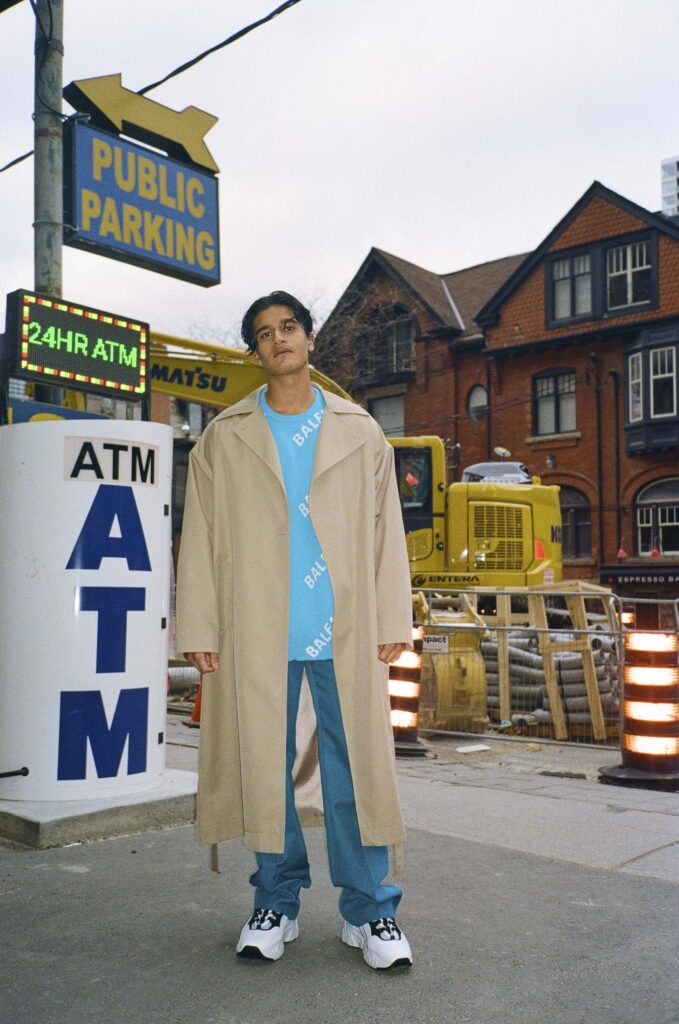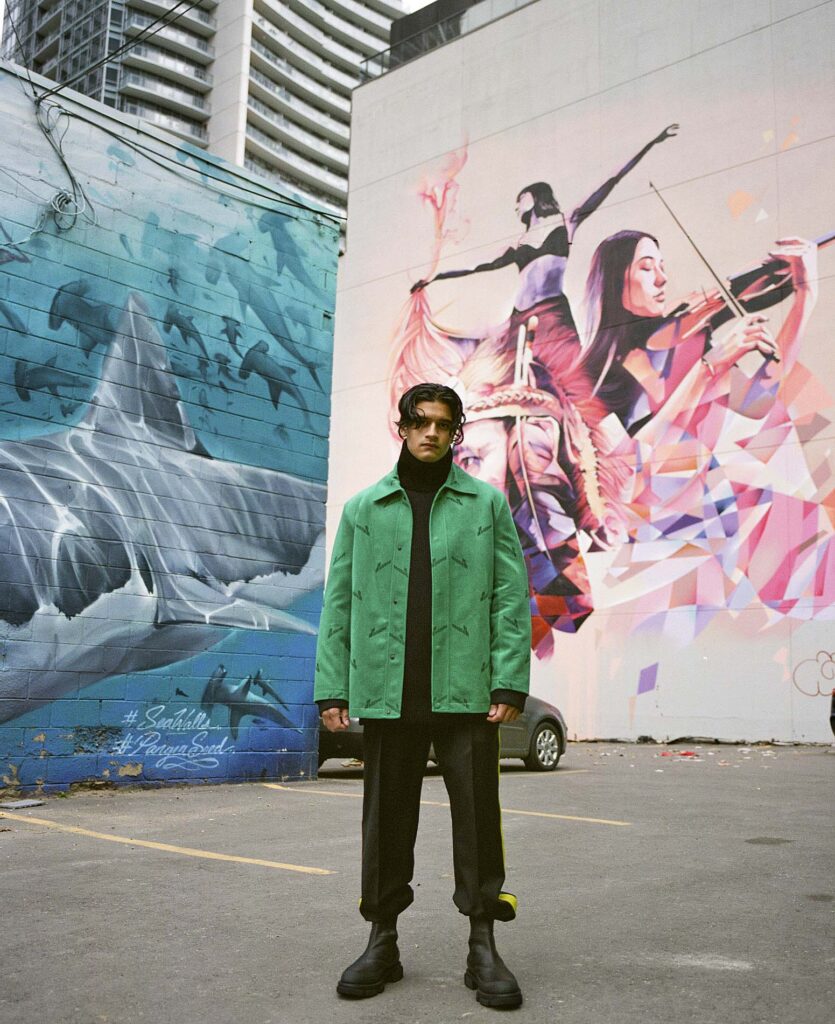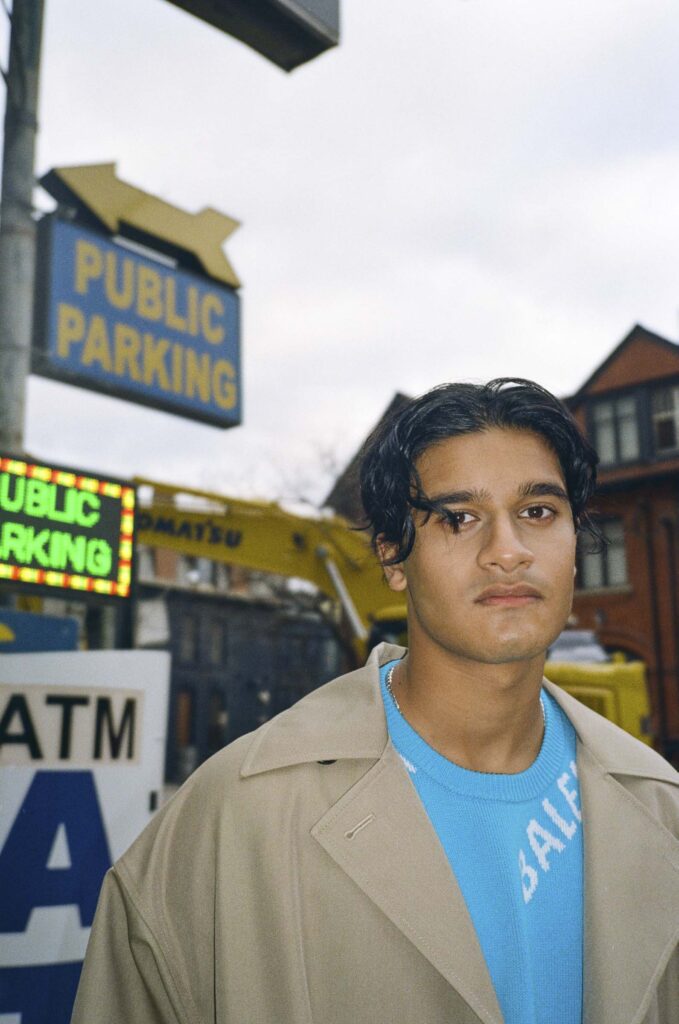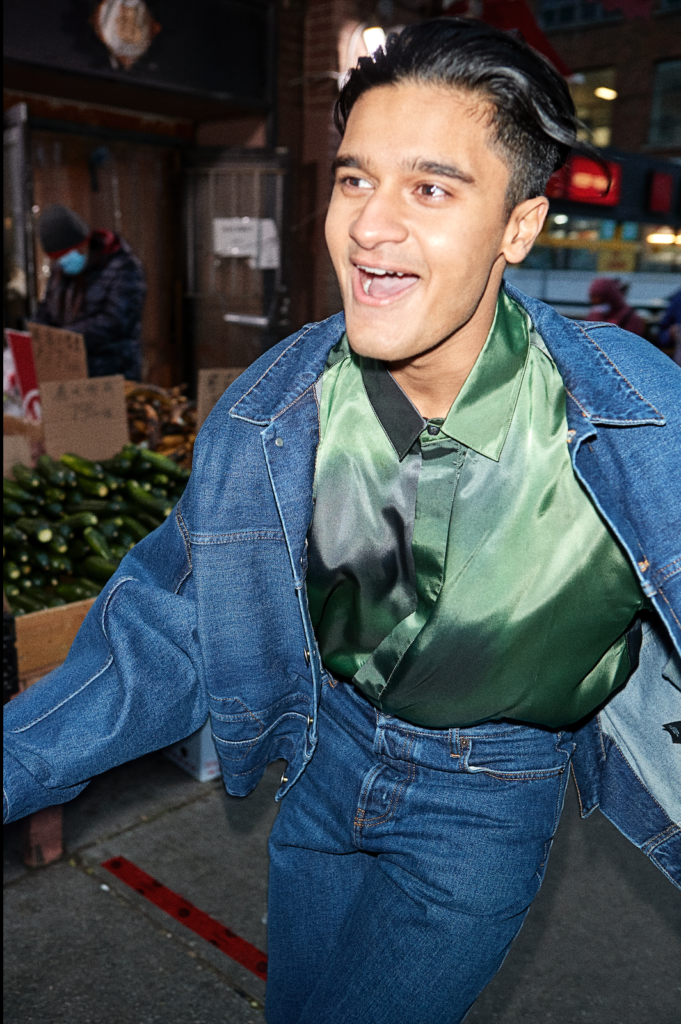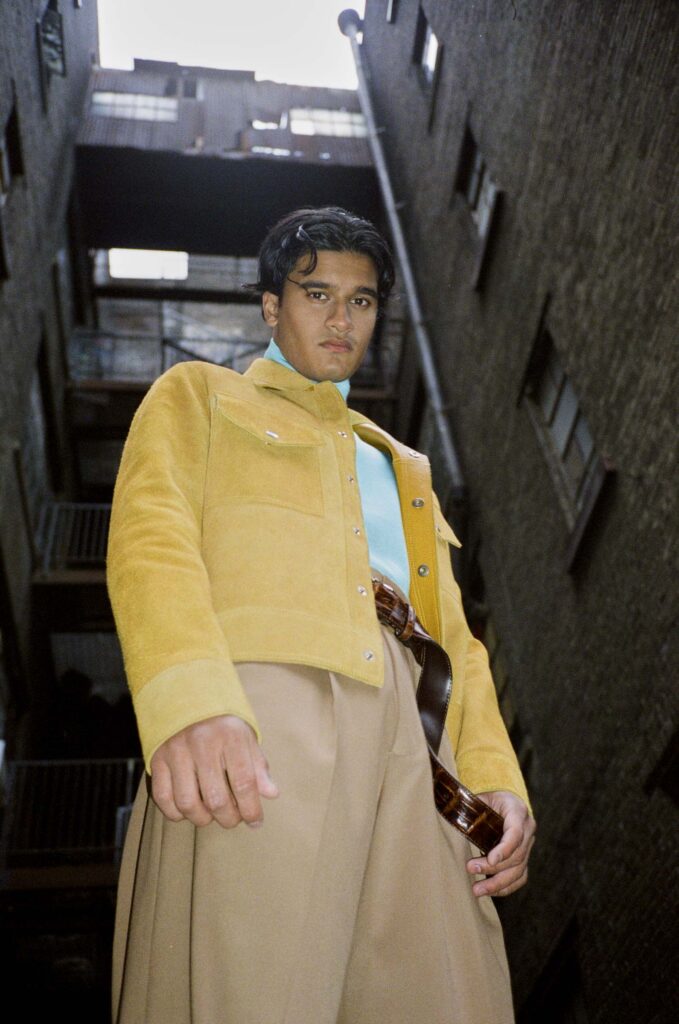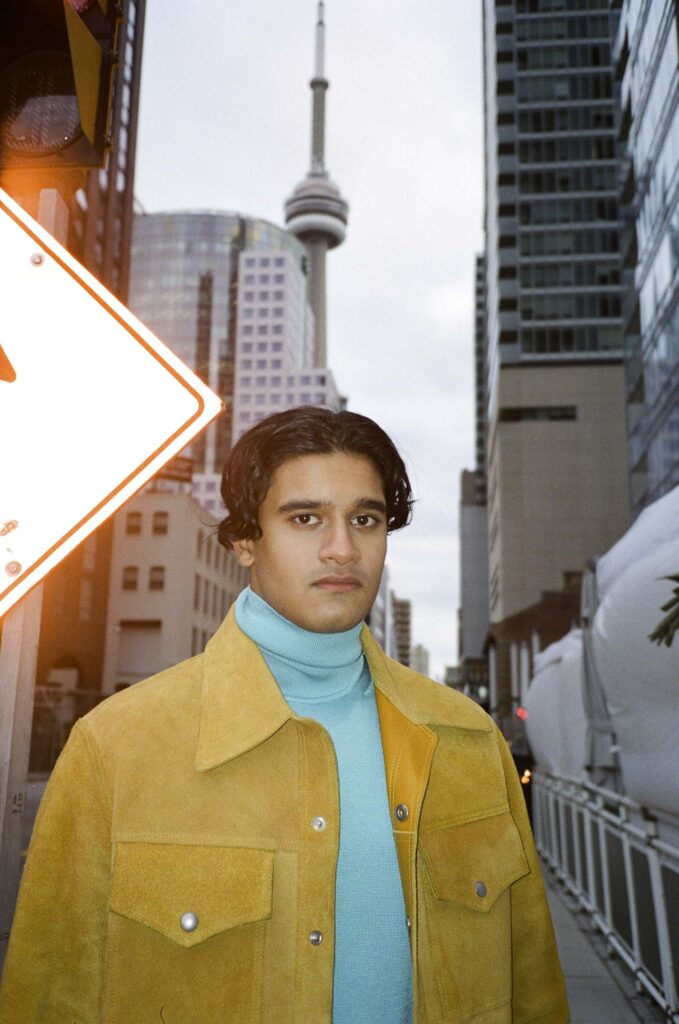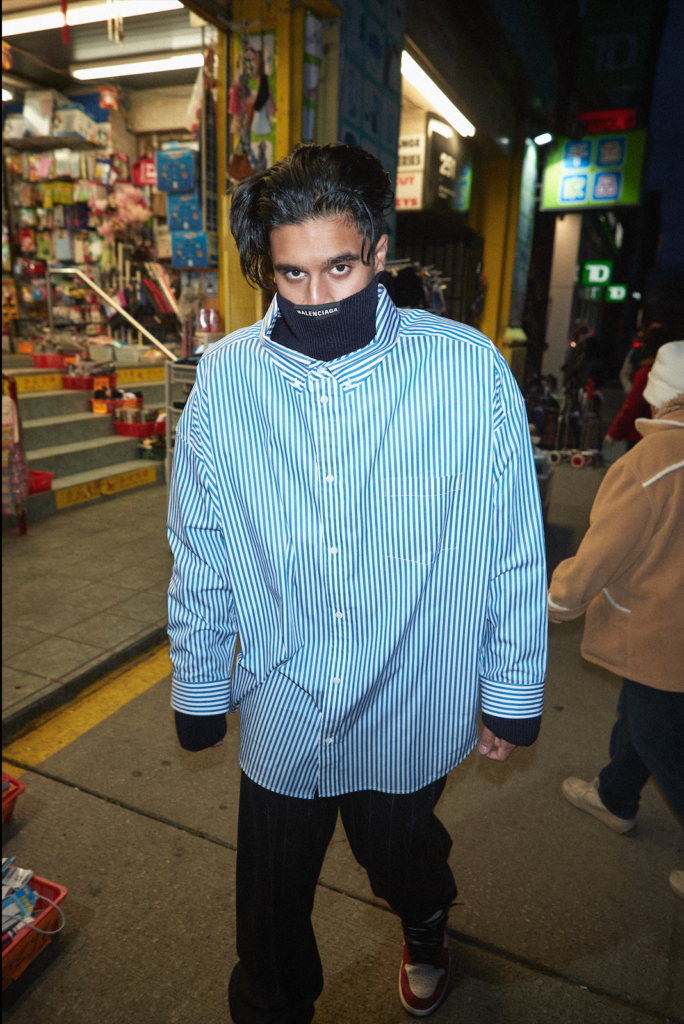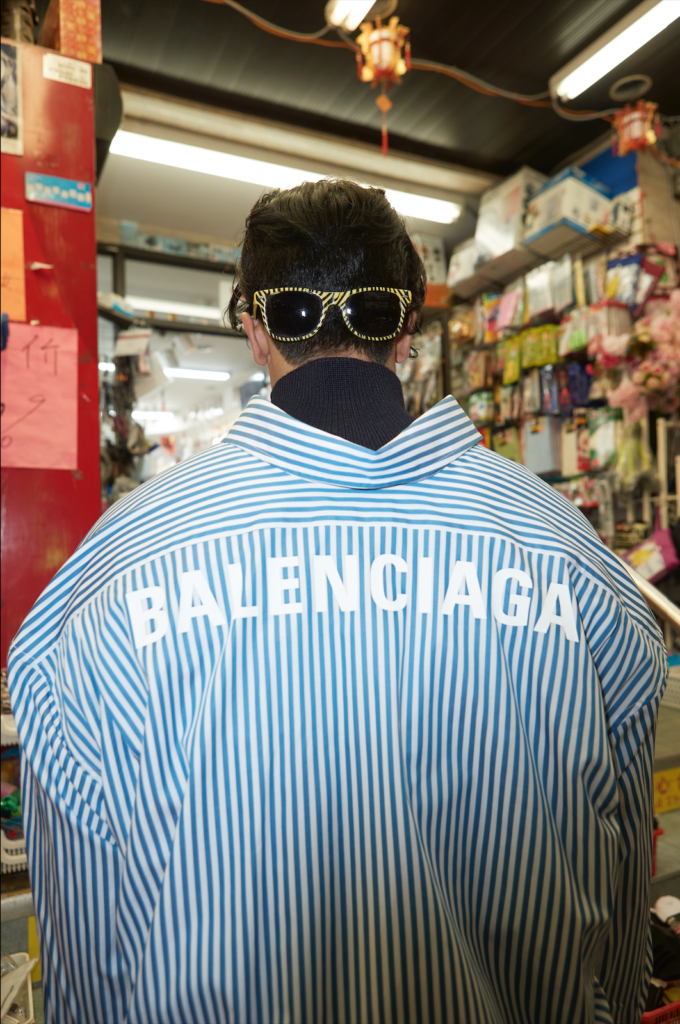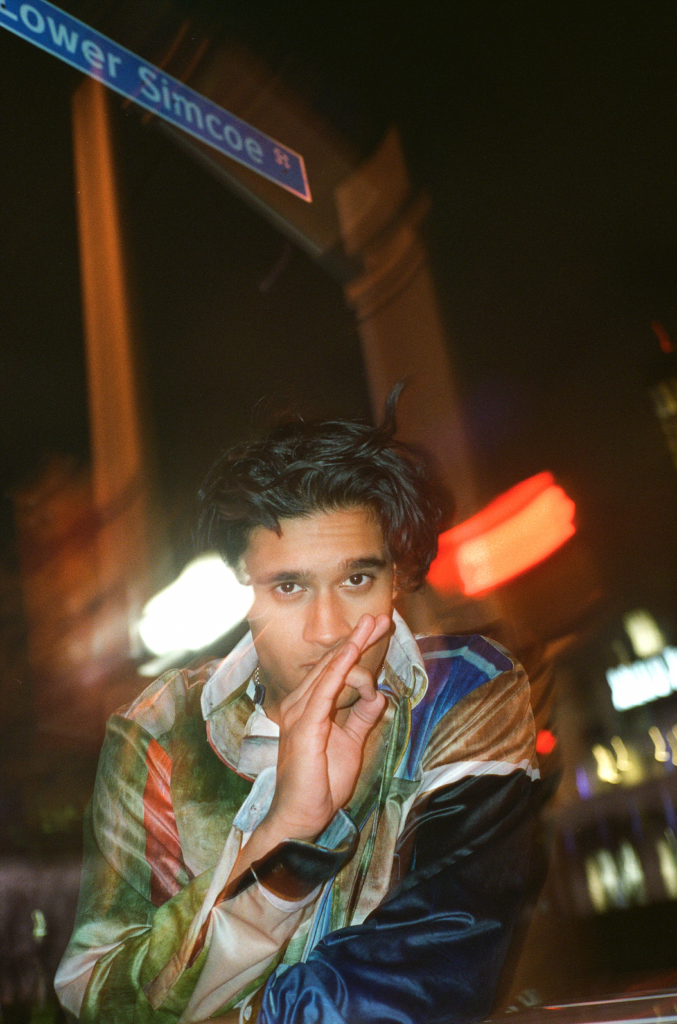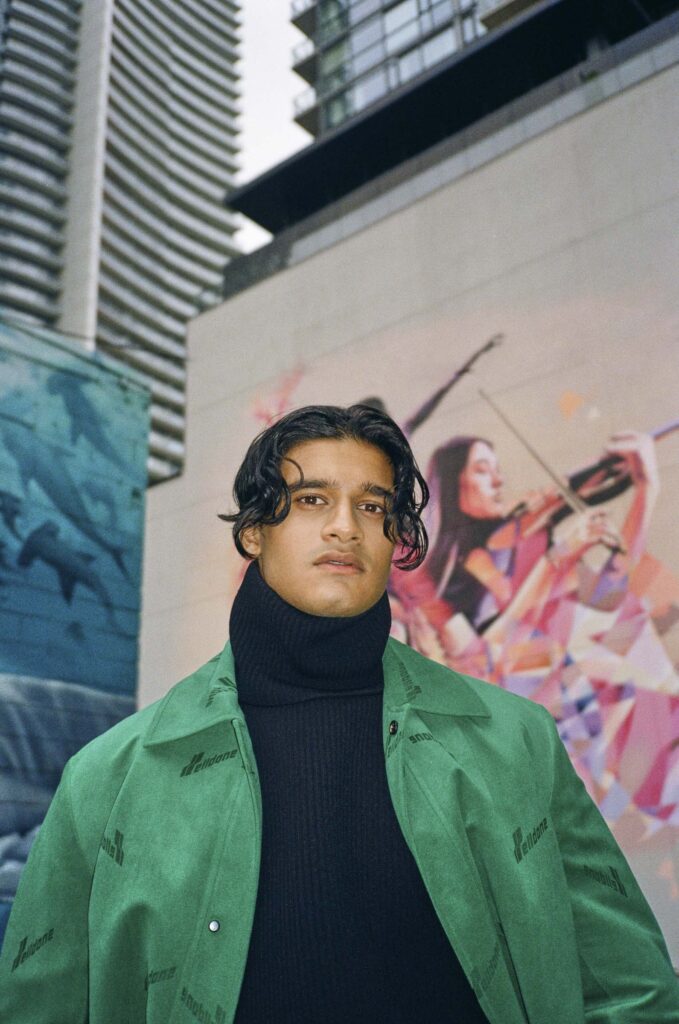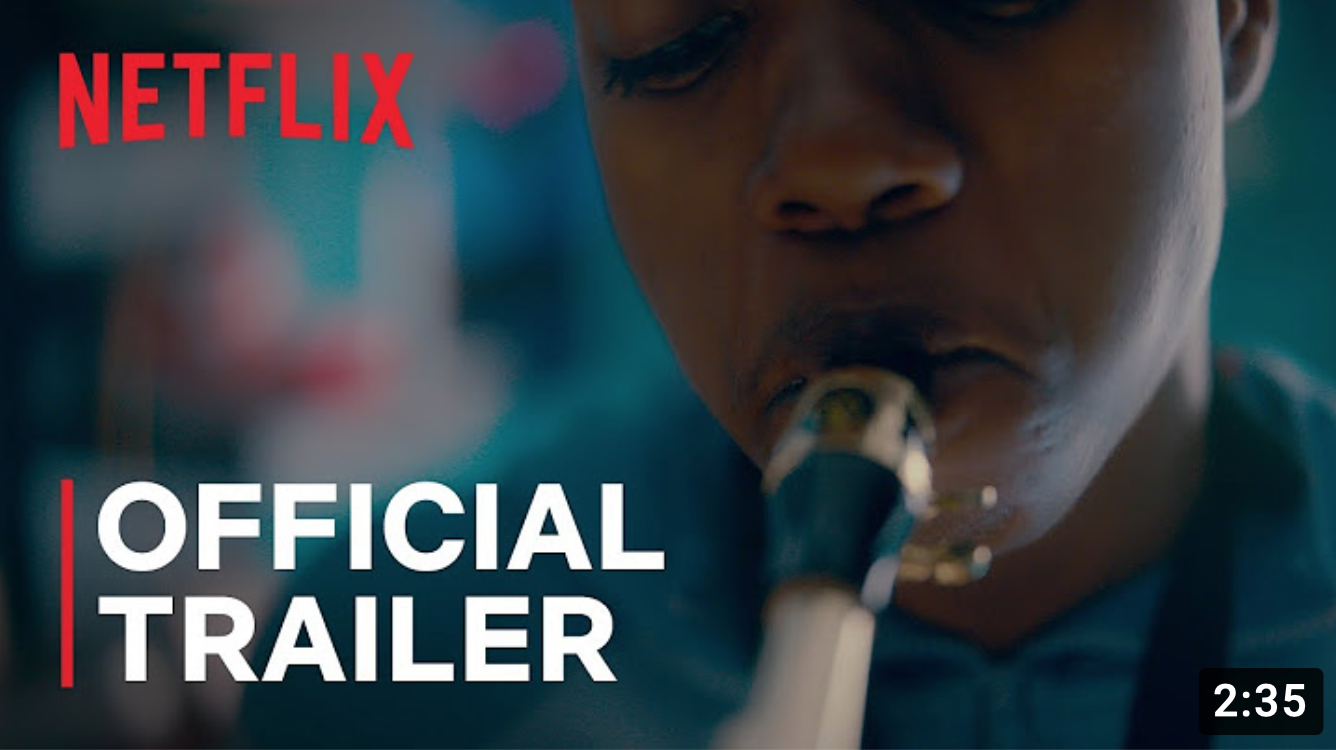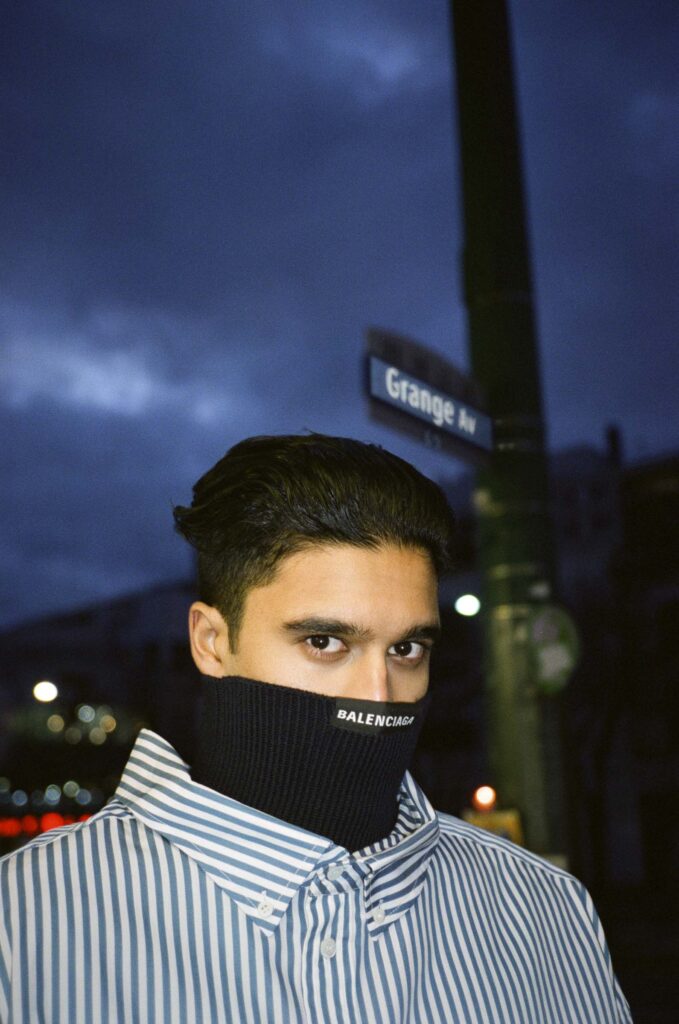
Interview by JUAN MARCO TORRES
Amir Bageria is a Canadian actor known for his credits in TV series “Degrassi: The Next Class,” and mostrecently, “Grand Army.” Amir’s role as Siddharta Pakam – the high school high achiever that is forced to come face-to-face with complex yet relevant identity crises. I had the pleasure of talking to Amir about life over the past year, his career, and his creative process throughout his new role for ContentsMan.
JMT: How has 2020 been for you? How has your life been restructured throughout the past year?
AB: Well needless to say it hasn’t gone as planned, haha. But in a weird way I feel like I really needed this. I started the year off in New York to study acting for a couple of months, and I got back home literally a few days before the lockdowns began. Before COVID-19, the plan was to head to Los Angeles for the release of Grand Army and stay there for a little while. Instead, I’ve got to reconnect with my hometown, and more importantly myself. I’m really thankful for that. Life was moving really fast so having some time to slow down and listen to myself I’ve been able to correct a few things I wouldn’t have been able to otherwise.
JMT: What draws you to a certain character? Are some roles harder to play than others?
AB: It’s really just a gut feeling. If you read a script and you have a strong reaction to it, chances are there’s something there. A lot of the times when I question whether or not I can pull a role off is when it turns out the best. So if I get a breakdown that makes me really anxious, I know there’s something there. I also really like it when roles aren’t stereotypical. I think the further removed a role is from yourself the more difficult it becomes to play. For example while Sid had his own challenges, I could easily identify with him because not too long ago I was a young man in high school dealing with my insecurities. But playing a character where much more is left to the imagination can be daunting, and it’s your job to fill in the blanks and make it as authentic as possible within the context of the story.
JMT: Can you share how you decided to become an actor and what steps did you take to make it into a career?
AB: When I was 8 years old my grade 3 teacher cast me as Macbeth in a very toned down child appropriate version of the play. I remember going out on stage so vividly. It was the first time in my life I ever felt truly in the moment. As soon as I felt that euphoria, I was hooked. Fast forward a few years I had done some improv camps, and was attending an arts high school. My friend’s mother who was involved in the industry sent me a link to the casting call for Degrassi, and told me I should send in a self tape. I followed her advice and sent one in. They asked me to come in and audition for a different character so I did. It was my first audition and for some reason they cast to this day it boggles my mind. After two years Degrassi got cancelled and I was having a tough time getting jobs. So I trained my ass off to be the best possible actor I could be. I scoured the city and went to every class or workshop I could. I watched a movie a day. I meticulously studied my favourite actors. I read their memoirs, and watched their interviews religiously. Sometimes I’d sneak an AirPod in and listen to them talk on podcasts while I worked other jobs. (shoutout to Off Camera with Sam Jones). I changed my physique so I wasn’t as easy to stereotype. I gave it everything I had.
JMT: Do your parents inspire you?
AB:I really don’t know where to begin with this. My parents are my everything. They are literally the most amazing people in the world. My Dad is my hero. He’s genuinely just such a remarkable human being. He’s so kind, humble, and passionate about life. I hope I take after him in that sense. Whenever I think of living life to it’s fullest, I think of him. My mom is an angel. Literally an angel. She’s so free spirited and gentle, and she is my number one fan. She’s always encouraged me to never quit and to stay disciplined. She really makes me believe in the good of the world. They both inspire me everyday. I just hope I always make them proud no matter where this journey takes me, and that one day I can somehow repay them.
JMT: You don’t have any social media accounts. Is there a particular reason why?
AB: I got Instagram eight years ago when I was twelve. I remember how it slowly took over my life. I paid way too much attention to what everybody else was doing, and kept trying to present this version of myself that ultimately wasn’t honest. I was living my life through a screen and it made me really depressed if I’m being honest. It turned into this vicious cycle of nothing and I needed a change. I think social media is the biggest issue teens face today, and I think it’s crazy how quickly it’s assimilated itself in our society. Being a kid is hard on its own, but having two sets of the same issues is a lot for someone who’s trying to navigate their way through the world. Ten years ago it was still taboo to be a kid with any public accounts online. Now it seems to be the norm. A lot of the conversations we should be having in person we have online, and because of that empathy seems like it’s on the path of becoming a lost virtue. There were a few artists that gave me the courage to leave it, and could probably articulate what I’m trying to say much better. The 1975, and Bo Burnham were two acts that really changed my perspective on all this. If you haven’t seen Make Happy or Eighth Grade, or listened to The 1975’s music, I’d check them out. They both have really profound ways of breaking down how this all came to be. I also have younger cousins in my family and I just hope they know one day the most joyful moments in your life happen when you’re not trying to document them but rather experience them to the fullest. I figure if I feel this strongly about it, having a presence online would be very hypocritical of me. It also provides the opportunity to prove to young people that you can have a successful career without it, and that the best form of self promotion first and foremost is doing good work.
JMT: How do you feel playing a role that touches upon things that so many people are experiencing on a daily basis?
AB: I feel a huge sense of responsibility. I know how much it means to people, and I just hope I got it right. I don’t feel any self importance from it though. I’m just an actor on a show. It took the writing, the cinematography, the editing, the producing, and the hard work of others, all for me to be presented in these situations the way I was.
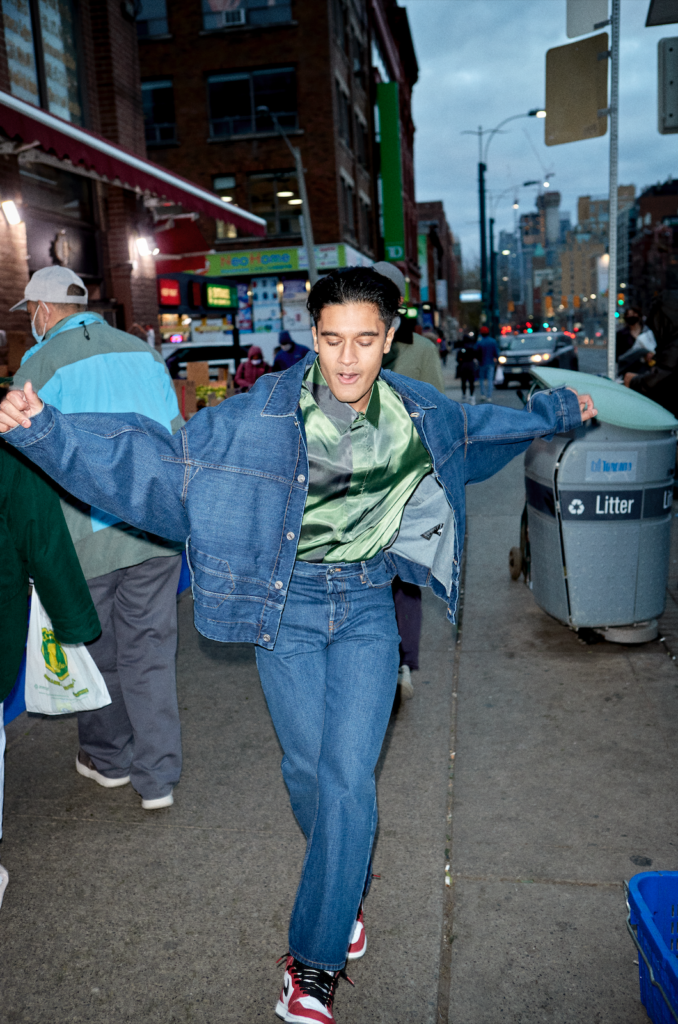
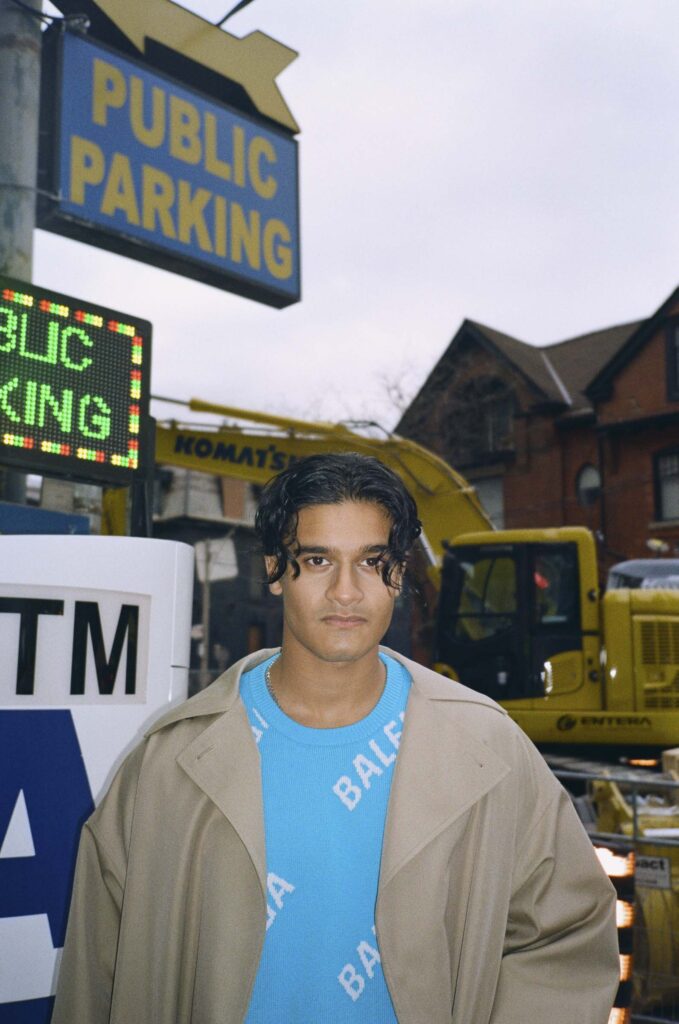
JMT: You are currently based in Toronto. What are some of your favorite areas of the city and why?
AB: Well I actually live in Mississauga, which is a city about 40 minutes west of Toronto. I spend a lot of time in this area called Port Credit near Lakeshore. It has a sort of old world vibe to it and I find it really peaceful to just sit by the lake and enjoy the view.
JMT: Is there a favorite cafe or restaurant?
AB: The Archtop Cafe in Port Credit is really cool. Their menu is great, and they have an underground section where they sell used records. Every now and then you can find a hidden gem in there. I actually applied for a job there once. Didn’t get it though. For good reason. I gave a terrible interview.
JMT: You play high school go-getter Sid in Grand Army. The character has quite the determination and courage, and it just seems to keep building as the series unfolds. How would you describe Amir in real life?
AB: Hmmm where to begin? A series of dichotomies.
JMT: Can you share about your passion for music production. What inspired this?
AB: I have some family roots in music. My uncle back in India is a really successful musician. One of his songs was the first I ever really remember falling in love with. Also my Dad is a real audiophile, and I think I inherited his ear. There’s something about music where it just makes sense to me in a spiritual way, but I can’t articulate that feeling technically. Learning music production feels like a good way to merge that instinct with real world application.
JMT: Our youth is often marked by a conflict between societal expectations and what we truly want. In the show, Sid is the only boy in his family, and we constantly see him being pressured to level up to his parents expectations. What do you think finally led him to break off this pattern?
AB: I think he reached a point where he learned to value his expectations of himself, rather than anyone else’s. And he knew that if he kept going down his current path it would lead him to an unfulfilling life. A lot of it had to do with external forces as well. Who knows who Sid could’ve been had the bombing not happened. Or if *spoiler alert* Bo didn’t out him. He could’ve waited until he was thirty to start living his truth. But the world seemed to have other plans for him. The older I get the more I realize how often that can be the case. Take the pandemic for example. It sucks. It’s been really difficult. However, now that there’s light at the end of the tunnel I feel like I’m exiting it more in touch with myself than when I entered it.
JMT: It was intresting to see how Sid’s greatest fear ended up being his gateway to fulfill his dreams. What do you hope people get from this story?
AB: Exactly that. Sometimes the things you fear the most could actually be your liberation. A lot of the most rewarding times in my life have come from diving head first into my fears rather than letting them control me. That can manifest itself in different things. Spontaneously booking a trip. Talking to a pretty girl. Deciding to go back to school. Really just saying yes to things. You just have to take a leap of faith and find out. Granted Sid was pushed, it wasn’t really a leap, but you get the point.
JMT: Do you have a dream role in mind?
AB: I would love to play a fighter or a hockey player. Fighting and hockey are two passions of mine, and having an excuse to learn as much as I possibly can about those crafts for a role would be so cool. Doing an action moviewould also be a dream come true. I’ve always wanted to do crazy stunts in a film. Or acting alongside Drake. That’d be crazy.
JMT: If you were not an actor, what would you be?
AB: A therapist most likely. For starters that’s what my Mom does, so I understand the world a little bit. But I really like talking people through their problems. Something about it is actually therapeutic for me. Does that make me a narcissist?
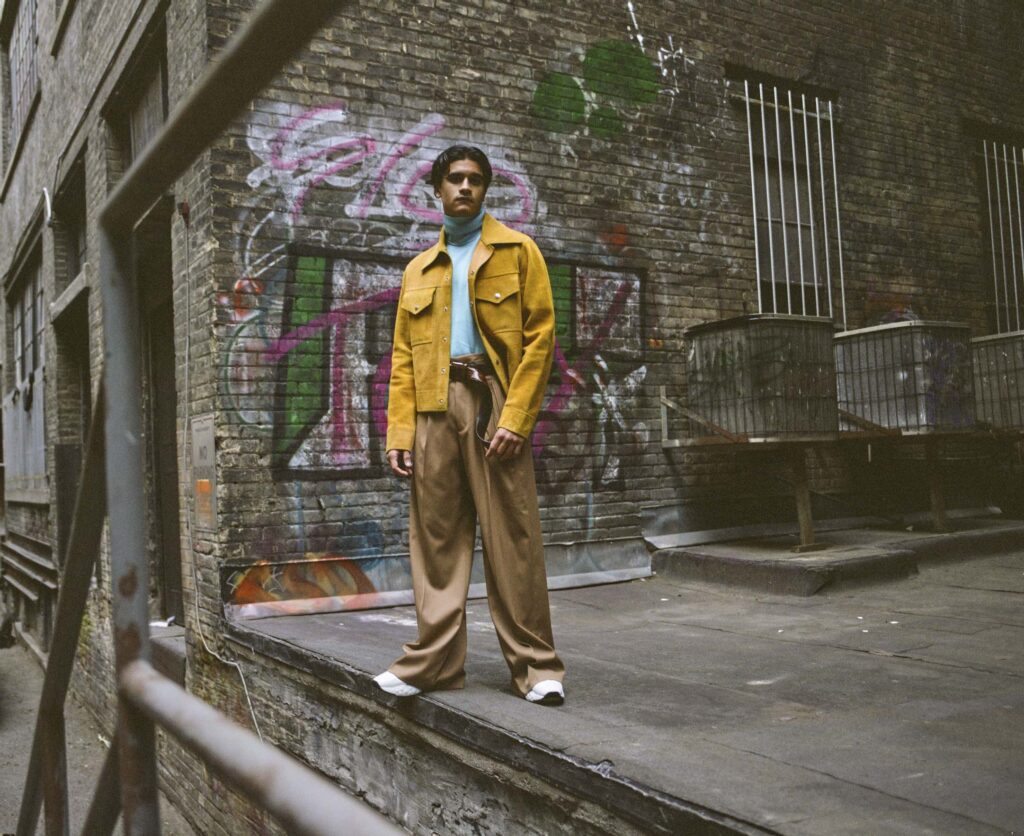
JMT: What can we expect from you next?
AB: If I’m being honest, I have absolutely no idea. I’m taking a bit of a break from acting at the moment. I don’t know how long it’ll last. I’ve been working in this industry since I was fourteen, and I just need some time away for a little so I can learn to love it again. In the meantime, I’m just going to do the things that make me happy. I’m so excited to learn about music and see where it takes me. And I’m looking forward to working on myself in other ways as well. I haven’t done the best job of taking care of myself the past few years, and right now I just need to focus on that. Thank you very much for taking the time to hear what I have to say. It means a lot.

